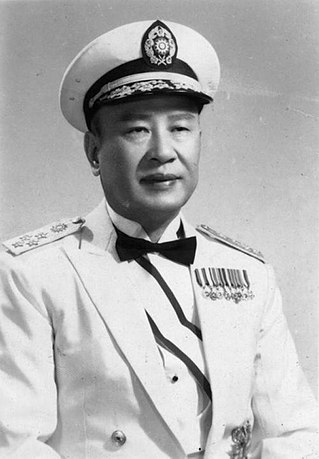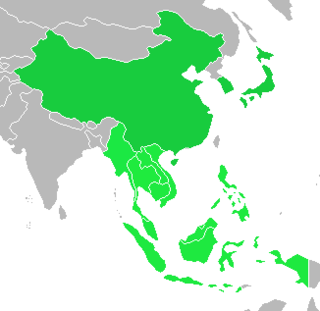
The Trilateral Commission is a nongovernmental international organization aimed at fostering closer cooperation between Japan, Western Europe and North America. It was founded in July 1973, principally by American banker and philanthropist David Rockefeller, an internationalist who sought to address the challenges posed by the growing economic and political interdependence between the U.S. and its allies in North America, Western Europe, and Japan. The leadership of the organization has since focused on returning to "our roots as a group of countries sharing common values and a commitment to the rule of law, open economies and societies, and democratic principles".
A drug cartel is a criminal organization composed of independent drug lords who collude with each other in order to improve their profits and dominate the illegal drug trade. Drug cartels form with the purpose of controlling the supply of the illegal drug trade and maintaining prices at a high level. The formations of drug cartels are common in Latin American countries. Rivalries between multiple drug cartels cause them to wage turf wars against each other.

Chiang Mai is the largest city in northern Thailand, the capital of Chiang Mai province and the second largest city in Thailand. It is 700 km (435 mi) north of Bangkok in a mountainous region called the Thai highlands and has a population of 1.2 million people as of 2022, which is more than 66 percent of the total population of Chiang Mai province.

Bai Chongxi was a Chinese general in the National Revolutionary Army of the Republic of China (ROC) and a prominent Chinese Nationalist leader. He was of Hui ethnicity and of the Muslim faith. From the mid-1920s to 1949, Bai and his close ally Li Zongren ruled Guangxi province as regional warlords with their own troops and considerable political autonomy. His relationship with Chiang Kai-shek was at various times antagonistic and cooperative. He and Li Zongren supported the anti-Chiang warlord alliance in the Central Plains War in 1930, then supported Chiang in the Second Sino-Japanese War and the Chinese Civil War. Bai was the first defense minister of the Republic of China from 1946 to 1948. After losing to the Communists in 1949, he fled to Taiwan, where he died in 1966.

The Taipei Economic and Cultural Representative Office (TECRO), also known as Taipei Economic and Cultural Office (TECO), Taipei Representative Office (TRO) or Taipei Mission, is an alternative diplomatic institution serving as a de facto embassy or a consulate of the Republic of China to exercise the foreign affairs and consular services in specific countries which have established formal diplomatic relations with the People's Republic of China. The PRC denies the legitimacy of the ROC as a sovereign state and claims the ROC-controlled territories as an integral part of its territory. An exclusive mandate, namely One-China policy, requires that any country wishing to establish a diplomatic relationship with the PRC must first sever any formal relationship with the ROC. According to The Fletcher Forum of World Affairs, "non-recognition of the Taiwanese government is a prerequisite for conducting formal diplomatic relations with the PRC—in effect forcing other governments to choose between Beijing and Taipei." As a result, these countries only allow the ROC to establish representative offices instead of a fully-fledged embassy or consulate for the purpose of conducting practical bilateral relations without granting full diplomatic recognition.

Mai, the Psychic Girl is a Japanese manga series written by Kazuya Kudō and illustrated by Ryoichi Ikegami. It was serialized in Shogakukan's shōnen manga magazine Weekly Shōnen Sunday from March 1985 to April 1986, with its chapters collected in six tankōbon volumes; it was later republished by Media Factory.

Charles King is the Professor of International Affairs and Government at Georgetown University, where he previously served as the chairman of the faculty of the Edmund A. Walsh School of Foreign Service.

Ma Bufang (1903 – 31 July 1975) (traditional Chinese: 馬步芳; simplified Chinese: 马步芳; pinyin: Mǎ Bùfāng; Wade–Giles: Ma3 Pu4-fang1, Xiao'erjing: مَا بُفَانْ) was a prominent Muslim Ma clique warlord in China during the Republic of China era, ruling the province of Qinghai. His rank was lieutenant-general.
Pasuk Phongpaichit is a Thai economist. A professor at Chulalongkorn University, she is the author of several books on corruption in Thailand.
Harold Stanley Marcus was president (1950–1972) and later chairman of the board (1972–1976) of the luxury retailer Neiman Marcus in Dallas, Texas, which his father and aunt had founded in 1907. During his tenure at the company, he also became a published author, writing his memoir Minding the Store and also a regular column in The Dallas Morning News. After Neiman Marcus was sold to Carter Hawley Hale Stores, Marcus initially remained in an advisory capacity to that company, but later began his own consulting business, which continued until his death. He served his local community as an avid patron of the fine arts and as a civic leader. In a chapter titled "Mr. Stanley"—the name by which Marcus was known locally for decades—in his 1953 work Neiman-Marcus, Texas, Frank X. Tolbert called him "Dallas's most internationally famous citizen" and worthy of being called "the Southwest's No. 1 businessman-intellectual."

Bertil Lintner is a Swedish journalist, author and strategic consultant who has been writing about Asia for nearly four decades. He was formerly the Burma (Myanmar) correspondent of the now defunct Far Eastern Economic Review, and Asia correspondent for the Swedish daily Svenska Dagbladet and Denmark's Politiken. He currently works as a correspondent for Asia Times.

The Chiang Mai Initiative (CMI) is a multilateral currency swap arrangement among the ten members of the Association of Southeast Asian Nations (ASEAN), the People's Republic of China, Japan, and South Korea. It draws from a foreign exchange reserves pool worth US$120 billion and was launched on 24 March 2010. That pool has been expanded to $240 billion in 2012.

The Kuomintang (KMT) is a Chinese political party that ruled mainland China from 1927 to 1949 prior to its relocation to Taiwan as a result of the Chinese Civil War. The name of the party translates as "China's National People's Party" and was historically referred to as the Chinese Nationalists. The party was initially founded on 23 August 1912, by Sun Yat-sen but dissolved in November 1913. It reformed on October 10, 1919, again led by Sun Yat-sen, and became the ruling party in China. After Sun's death, the party was dominated from 1927 to 1975 by Chiang Kai-shek. After the KMT lost the civil war with the Chinese Communist Party in 1949, the party retreated to Taiwan and remains a major political party of the Republic of China based in Taiwan.
Richard J. Samuels is an American academic, political scientist, author, Japanologist, Ford International Professor of Political Science the former Director of the Center for International Studies at the Massachusetts Institute of Technology.
Japanese migration to Thailand has a long history and in recent years has grown. As of 2021, the Ministry of Foreign Affairs reports that Thailand has the fourth highest number of Japanese expatriates in the world after the United States, China and Australia. Bangkok, the home of two-thirds of all the registered Japanese residents in Thailand, has the second-largest Japanese expatriate population of any city in the world outside Japan, behind only Los Angeles. Japanese residents themselves suspect that their actual population number may be several times higher than the official figures, because many transient residents, especially those on long-term tourist visas, fail to register with Japanese consulates.
Sebastian Christopher Peter Mallaby is an English journalist and author, Paul A. Volcker senior fellow for international economics at the Council on Foreign Relations (CFR), and contributing columnist at The Washington Post. Formerly, he was a contributing editor for the Financial Times and a columnist and editorial board member at The Washington Post.

The Chinese Communist Revolution was a social and political revolution that culminated in the establishment of the People's Republic of China (PRC) in 1949. For the preceding century, China had faced escalating social, economic, and political problems as a result of Western imperialism, Japanese imperialism, and the decline of the Qing dynasty. Cyclical famines and an oppressive landlord system kept the large mass of rural peasantry poor and politically disenfranchised. The Chinese Communist Party (CCP) was formed in 1921 by young urban intellectuals inspired by European socialist ideas and the success of the October Revolution in Russia. The CCP originally allied itself with the nationalist Kuomintang (KMT) party against the warlords and foreign imperialist forces, but the 1927 massacre of Communists in Shanghai ordered by Kuomintang leader Chiang Kai-shek forced them into the Chinese Civil War, which would last more than three decades.

Chiangism, also known as the Political Philosophy of Chiang Kai-shek, or Chiang Kai-shek Thought, is the political philosophy of President Generalissimo Chiang Kai-shek, who used it during his rule in China under the Kuomintang on both the mainland and Taiwan. It is a right-wing authoritarian nationalist political ideology which is based on mostly Confucian and Tridemist ideologies, and was used in the New Life Movement in China and the Chinese Cultural Renaissance movement in Taiwan. It is a syncretic mix of many political ideologies, including revolutionary nationalism, Tridemism, socialism, militarism, Confucianism, state capitalism, constitutionalism, fascism, authoritarian capitalism, and paternalistic conservatism, as well as Chiang's Methodist Christian beliefs.











